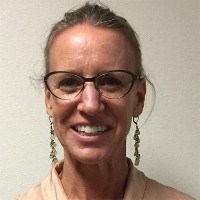Plenarföredrag på NKRF8

https://www.colorado.edu/cmci/people/communication/laurie-gries
The Swastika Counter: A Rhetorical Data Studies Approach for Studying and Enacting Activism in an era of Ongoing White Supremacy
In recent years, data activism (Milan and Gutiérrez, 2015) has become a promising means of making visible contemporary injustices that take place within and across national borders and mobilizing social action. In this presentation, I forward “rhetorical data studies” as a productive methodology for both studying and generating data activist tactics with persuasive potential to generate actionable insights and tools (Gregg and Nafus 2017) that can account for (and hopefully intervene in) pressing socio-political problems. To explicate this approach, I weave visual rhetorical studies, critical data studies, and critical race theory to theorize the connections between the racial politics of circulation (Gries and Bratta 2019) and the visual politics of accountability. I then demonstrate not only how such approach can be deployed to study how others have put data activist rhetorics to work for their own social justice purposes but also how I have used this approach to generate The Swastika Counter, a digital public humanities project that aims to create reliable data about low level incidents of racialized hate across the United States. Ultimately, I insist that as we begin to focus more intently on how rhetoric moves beyond borders in an age of ongoing white supremacy, we, as rhetoric scholars, ought to be concerned with not just developing new ways to study such movement but also with using our rhetorical expertise to develop new means of making such movement possible.

https://www.hf.uio.no/imk/english/people/aca/oyvindih/
Pandemic rhetoric: The strategies of the Scandinavian health authorities during the COVID-19 pandemic
Why should people believe what you say? The health authorities also had to ask themselves this basic question during the COVID-19 pandemic. In the complex crisis that arose as a result of the outbreak, there was a large supply of competing perceptions and notions of expertise, character, and benevolence negotiated in traditional and social media. Famously, the Scandinavian countries chose different strategies to deal with the pandemic. While Denmark and Norway adopted strict measures such as lockdown, Sweden chose a strategy that has been called a de facto herd immunity strategy. To some degree, the public health authorities also chose different ethos building strategies. In this presentation, I will discuss the rhetoric of expertise, communication of uncertainty, practices of transparency, as well as the attempts to establish rapport with the public.

https://liberalarts.utexas.edu/mals/faculty/kc32638
Border Rhetorics in Pandemic Times
In this talk, I discuss border rhetorics (rhetoric about borders) and bordering rhetorics (rhetoric that constitutes borders) in the early days of the AIDS pandemic and during the COVID-19 pandemic in the United States. I will argue that HIV/AIDS became an opportunity to enact what I call "alienizing logic," which is the foundational logic that defines US national belonging. In particular, I articulate the ways that alienizing logic rhetorically manifested in calls to quarantine people living with HIV/AIDS inside the US ban those outside from coming in. In the second part of the talk, I consider how disease again became an opportunity to enact alienizing logic as found in rhetoric about asylum seekers at the southern US border during the COVID-19 pandemic. Discussing the border and bordering rhetorics of the two pandemics in relation to one another provides new ways to think about borders through the lens of rhetorical theory and criticism.
